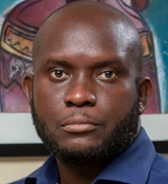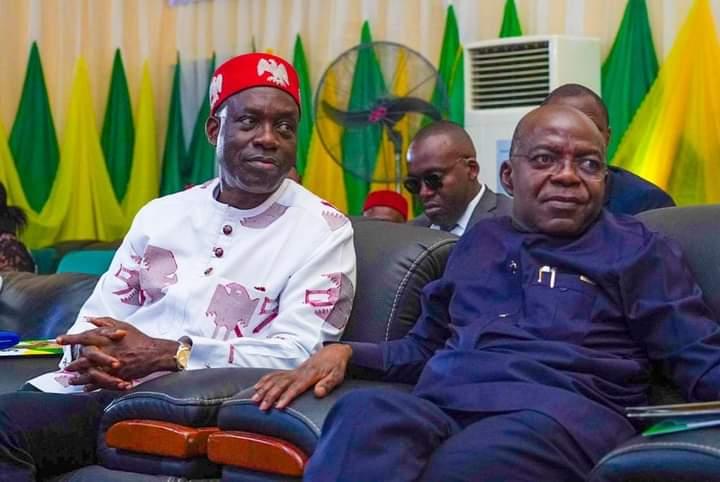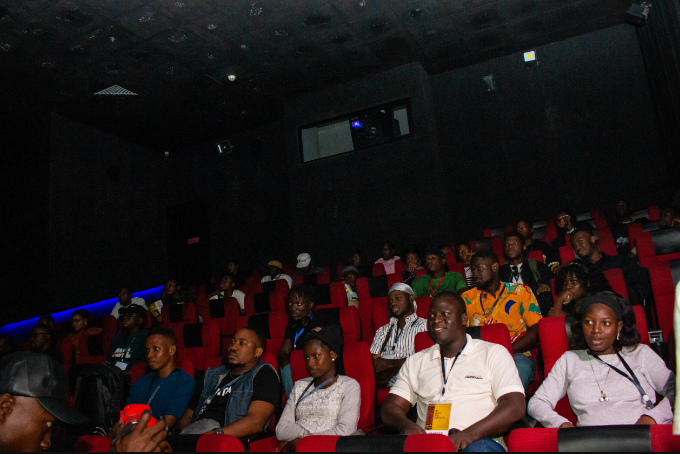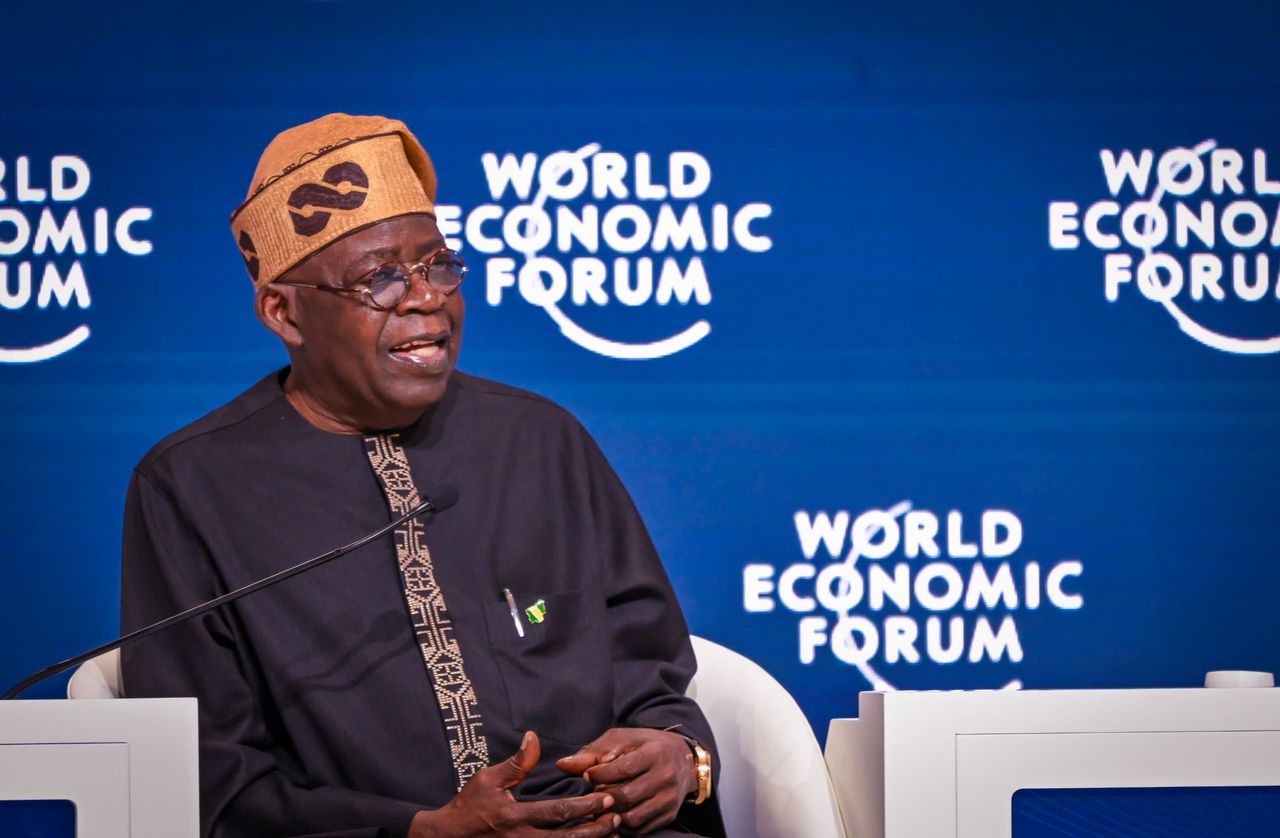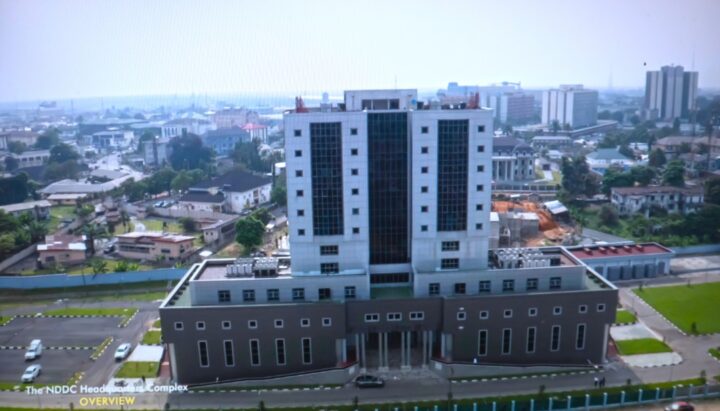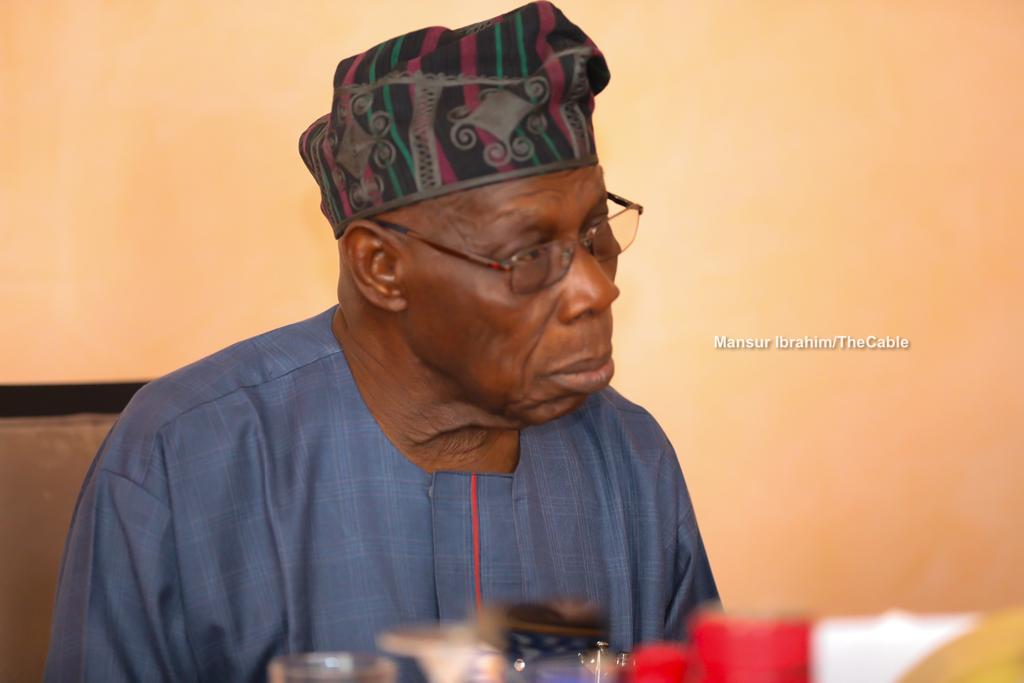“The President has mandated us to increase coverage from about seven million to about 50 million people to have health insurance in the next two to three years.” Dr. Tunji Alausa, Nigeria’s Minister of State for Health (May, 7, 2024).
‘Health is Wealth’, as the popular saying goes. There is therefore a clear nexus between the state of Healthcare in Nigeria, and its economic situation. The lofty but ambitious health policy target by President Bola Tinubu for an increase in health insurance coverage from 7 million to about 50 million people, or about 700 percent, within three years in Nigeria, will most probably be achieved- only if Tinubu visibly leads from the front.
The justification for this submission comes from the challenging history of public health insurance in Nigeria, as can be grasped from the policy submission of Prof Eyitayo Lambo, who as Minister of Health in 2005 under President Obasanjo, succeeded in operationalizing public health insurance, after 43 years of trying. The experience of the United States under President Obama with ‘Obamacare’, may further validate the leadership style required for such ambitious but desirous health policy goal.
So, what does the history of health insurance in Nigeria tell us, and what are the policy leadership lessons for the current goal to provide health insurance coverage to 43 million more people by 2027?
Though health insurance was first discussed in Nigeria under the tenure of Dr. Moses Majekodunmi as Health Minister in 1962, the bill for health insurance he introduced in parliament for Lagos, failed. Vice Admiral Patrick Koshoni in 1984 and Prof. Ransome Kuti in 1992, were some of the other Ministers of Health, who made policy efforts at introducing a public health insurance scheme in the country. It was however with Prof. Lambo as minister, that the National Health Insurance Scheme (NHIS) became operational on June 6, 2005. Recounting his experience, ‘He (President Obasanjo) told me he has approved all, but I told him what I needed was beyond approval, that I needed his support. He assured me of that’. Lambo went further to add, ‘A number of things happened, and he (Obasanjo) helped me to overcome them’.
Advertisement
While it would be interesting to know the ‘number of things that happened’, what this demonstrates is the level of political commitment and frontal leadership required from President Tinubu, if the ambitious but desirous mandate of increasing health insurance coverage by over 700 percent within 3 years- most probably a world record in development governance- is to be achieved.
With some historical political economy analysis on health insurance and policy in Nigeria provided, what then are some of the feasible approaches that can be adopted to increase health insurance coverage from 7 million to 50 million by 2027?
President Tinubu will have to visibly lead from the front- politics, media, warts and all. He has to make health insurance coverage a frontline political issue. Just as Nigerian politicians value citizens with voters card, health insurance can be ‘politicised’ to a stage where it becomes part of political empowerment. In the brass tacks of Nigerian politics, Tinubu has to nudge the politicians he aligns with, encouraging them to publicly show off the number of constituents they have enrolled into health insurance packages. Every political leader and political stakeholder should demonstrate visibly, commitment to health insurance enrollment among their ‘political structure’, if they are to receive political patronage. Just as food items and other empowerment materials are distributed, health insurance enrollment cards should also be distributed.
Furthermore, health insurance should be made a part of the palliatives and support distributed by the Ministry of Humanitarian Affairs.
Advertisement
From a management perspective, the frontline role of President Tinubu can include the last Thursday of every month when the President visits a selected primary healthcare centre (PHC), where he symbolically pays his monthly health insurance fee. The media visibility that comes with such efforts, and political benefits to those that emulate the President as a way of currying his favour and support, will ensure that state governors, local government chairpersons, ward councilors, legislators and party officials also visit PHCs for health insurance subscriptions and payment, alongside their supporters. When done on a Thursday, the visibility extends to Fridays, with resultant knock-on effect.
The core of the health insurance programme as led by the National Health Insurance Authority (NHIA), is the Group, Individual and Family Social Health Insurance Programme (GIFSHIP), which is designed to provide coverage to Nigerians, especially those in the informal sector, who ordinarily have challenges with official documentation to access health insurance. The informal sector provides livelihoods to an estimated 65 per cent of the Nigerian labour force, and is therefore significant. The fee for one year is N15,000, N45,000 and N60,000 for group, individual and family social health insurance respectively. By this figure, the average coverage monthly cost for an individual is N1,250 ($0.90), which is relatively affordable. If an additional 43 million people enroll by 2027, that will amount to about N645 billion financial injection into the country’s health sector, which will be a significant capital injection beyond government provisions.
Such sustained capital injection will significantly reduce migration of medical professionals, provide medical equipment, improve medical infrastructure and remuneration of medical workers. It also dwarfs the funds so far received from the Basic Healthcare Provision Fund (BHCPF), which was previously seen as the policy fix to the problem of inadequate capital in the sector. The BHCPF, though a product of the National Health Act of 2014 through 1 percent of Consolidated Revenue Fund, only became operational in 2018 with N55 billion, which had declined to N35 billion in 2021, due to dwindling government revenue. Just as Nigeria’s telecoms sector addressed its fundamental challenges from 2001 following the injection of funds after further policy liberalisation, the injection of funds from additional millions of health insurance subscriptions, should help in addressing manpower, equipment and infrastructure challenges in country’s healthcare system.
And there is a back-end management perspective to PHCs as a major medium for health insurance. PHCs are designed to be the backbone of an effective and efficient healthcare system. By some estimates, only about 20 percent of the 30,000 PHC facilities across the 774 local governments of the country are in good working condition. Therefore, with about 80percent of PHCs in disrepair, access to healthcare for the populace is severely restricted, leading to undue pressures on the secondary and tertiary healthcare institutions. This helps to explain Nigeria’s abysmal World Health Organisation ranking as the 5th worst healthcare system in the world, with average life expectancy of 57 years.
Advertisement
As political leaders are compelled to visit PHCs within their electoral domain, the appalling state of majority of these PHCs can compel positive action from politicians, as the media backlash a politician will suffer from having a dilapidated PHC in their domain, should spur positive action.
From a real estate perspective, many of these PHCs can have their surroundings better maximized through collaboration with private financial and insurance companies that also handle health insurance. The estimated millions of increased subscriptions should make a good business case for these companies to rehabilitate parts or all of the PHCs, including the parts that will now serve as their offices within the premises of the PHC. Communities where traction on community health insurance subscription has been hindered by trust issues, will feel more comfortable with depositing their health insurance contributions at financial organisations located within PHCs. Further incentive for these private companies to not only contribute to PHC rehabilitation, is that the co-location within PHCs becomes a cost-effective means of meeting their branch expansion and financial inclusion targets, as part of the National Financial Inclusion Strategy (NFIS 2012). These financial companies therefore will have the responsibility of providing clean and maintained environments that they are known for across their thousands of branches in Nigeria and abroad.
The management expertise of these financial organisations can also be deployed to stemming the outbound migration of healthcare workers. That these organisations have proved adept at not only making significant financial returns, but also retaining well trained staff, is a pointer to their ability to provide management support that can reverse the trend of migration among health workers.
While the Sector-Wide Approach (SWAp) and the Health Sector Renewal Programme (NHSRIP) by President Tinubu has led to a release of N25 billion to the National Primary Health Care Development Agency (NPHCDA) and the NHIA through the Basic Healthcare Provision Fund (BHCPF) in 2024, and to prevent disruptions in service provision while BHCPF 2.0 is being developed, the sum released, though commendable, will barely scratch the surface in rehabilitating thousands of PHCs.
Advertisement
The real estate partnership approach with financial institutions may therefore be a more sustainable pathway towards revitalizing PHCs across the country.
To be clear, the PHCs are not to be fully converted to branches of financial institutions. The economic activities in rural locations where many of these health centres are located, do not make a business case for full branches. However, sufficient presence for cash and other financial transactions will compel the financial organisations to make the necessary investments in the environment of the PHCs, even as they have to maintain their brand image. The companies will deploy their expertise in rural and agent banking, in not only improving health insurance coverage, but also supporting primary healthcare, as they can also play the role of Health Management Organisations (HMOs).
Advertisement
Further envisaged is a solvent health financing sector, where financial institutions are encouraged to invest in the education and training of medical professionals and health economists, who are required for Nigeria’s growing population, with additional potentials for vaccine production and manufacturing of medical equipment.
While some may question the validity of politicizing healthcare, the reality of Nigeria’s political economy and policy outcomes, show that politics drives policy implementation. Politics excites in these parts, and attaining the geometric proportional growth of over 700 percent increase in health insurance coverage within 3 years, will most likely require all the conventional and not-so-conventional political impetus. And when momentum has been sustained in coverage, subscriptions can be done through USSD codes, telecoms companies and digital means. But it may require 12 months of sustained presence by Tinubu, before the ambitious milestone can be achieved.
Advertisement
Another point to note from the experience of Prof. Lambo in the launch of public health insurance in Nigeria, is that Dr. Ngozi Okonjo-Iweala, the then Finance Minister, took health as a major component of the economy, and provided the necessary support. Dr. Tunji Alausa, the Ministry of Health and NHIA will therefore require the buy-in of Mr. Olawale Edun, Nigeria’s Minster of Finance and Coordinating Minister of the Economy, in achieving the desired coverage goal.
Still on politicization of health insurance, there are some global examples, though with differences in each country’s policy environment. For the United Kingdom, proposed reforms around the National Health Service (NHS) do come with a lot of political calculations. In the United States (U.S), the Affordable Care Act (ACA), signed into law by President Barack Obama on March 13, 2010 and popularly known as ‘Obamacare’, is the most significant expansion of health insurance and coverage in the U.S since Medicare and Medicaid in 1965. By some government estimates, Obamacare led to over 25 million more people getting healthcare coverage and insurance. The political battles that President Obama fought to have Obamacare come to fruition are well documented, and may provide some comparative justification for President Tinubu providing frontal leadership, for new current health insurance policy goal.
Advertisement
For hope to be renewed in Nigeria, a more effective and efficient healthcare system is required, to ensure that health translates to wealth. The policy mandate by President Tinubu to increase the number of health insurance coverage from about seven million to about 50 million people by 2027, is a worthy policy goal that provides the financial elixir and socioeconomic structure for a well-funded healthcare system. An analysis of Nigeria’s policy environment however shows that President Tinubu should visibly lead politically, in this drive for an over 700 percent increase in health insurance coverage within 3 years. He should have a dedicated day every month, where he publicly pays his monthly health insurance fee. Obasanjo led from the political front for health insurance to commence in 2005 in Nigeria, after previous governments tried since 1962. Obama put up a political fight for Obamacare in 2010 to provide healthcare coverage to additional 26 million Americans. For an additional 43million Nigerians to have health insurance coverage by 2027, President Tinubu should please lead from the front. And a healthy Nigeria, is a wealthy Nigeria, that renews hope.
Dr. Uwanaka writes from African University of Science and Technology, Abuja. [email protected]
Views expressed by contributors are strictly personal and not of TheCable.
